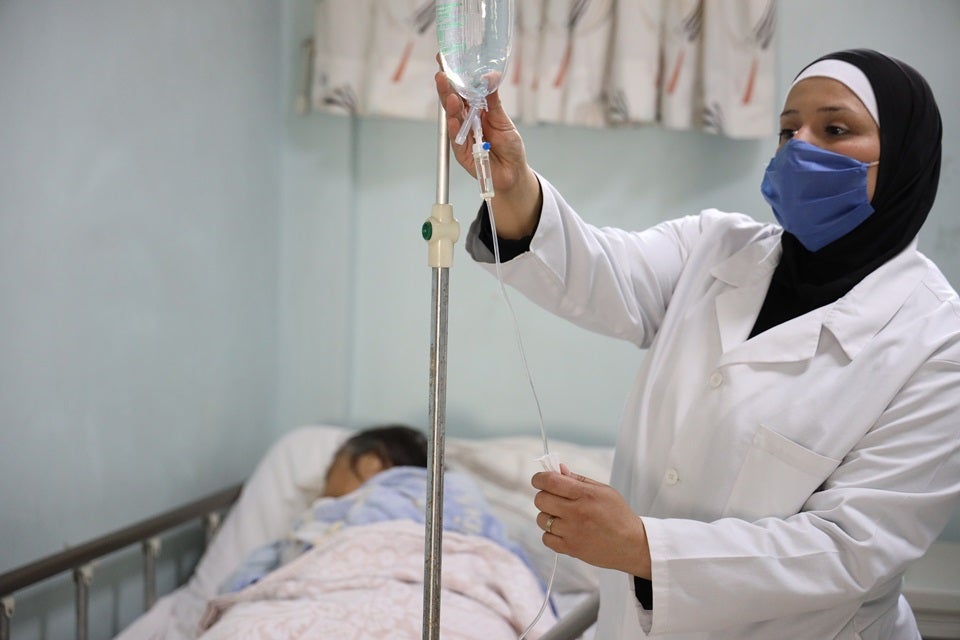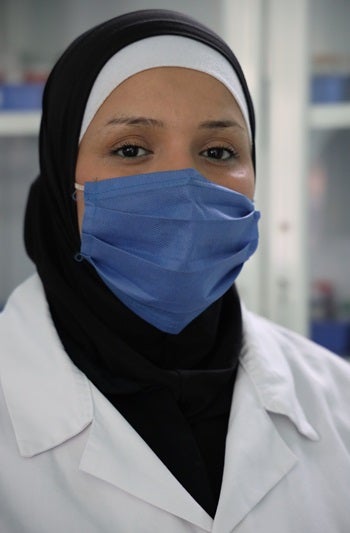From where I stand: “Even though we were distanced physically from each other, we came closer through love”
Date:

Layal Mahfouz, 32, is a Lebanese nurse living in Tripoli, the second largest city in Lebanon. Originally from Koura in the north of Lebanon, she has been working at the Social Services Medical Center for the elderly in Tripoli for 11 years. As part of her work, Layal provides nursing care for patients and manages employees at the Centre. The COVID-19 crisis has made her work more challenging than ever, and following the deadly Beirut port explosion, new COVID-19 infections are reaching record highs in the country. By the end of September, over 36,000 people have been infected and at least 347 have died from the virus.
 The virus affected us a lot here; the elderly centre was quarantined, and only three of us [staff members] could leave the centre. We had to sign a pledge saying that we are the only three people who are communicating with the outside world. The other staff members were quarantined inside the centre, so we were the only source of communication between the departments and the outside world. We pledged to remain quarantined when we left the centre, meaning we would go home and nowhere else.
The virus affected us a lot here; the elderly centre was quarantined, and only three of us [staff members] could leave the centre. We had to sign a pledge saying that we are the only three people who are communicating with the outside world. The other staff members were quarantined inside the centre, so we were the only source of communication between the departments and the outside world. We pledged to remain quarantined when we left the centre, meaning we would go home and nowhere else.
We kept that promise so that we could continue working without having to sleep in the centre. The risks were high, and that affected us physically and psychologically. It was a tough three months.

When I went home, I would be scared to come close to my family. I was the only person at home who was going out of the house. My two children were quarantined in the home, and my husband had stopped working. My family was scared, but they tried not to show it, but my husband would ask me to keep distance from our children. I did not visit my extended family, and we did not interact with anyone. I always made sure to wear mask and gloves, and hygiene and sanitization were priorities. Some people were scared to approach me and would keep their distance, they remain scared, and I understood that.
I am scared for my children and my family too. I have my mother at home, and I am scared that she might contract the virus. I was also scared for my patients, who are all very old.
We consider our patients to be like our family, which is why we were determined to quarantine them and protect them. We made sure to take all precautions, even if that meant to distance our patients from their family. The pandemic changed our hygiene protocols and the way we treat people; it affected the expression of our affection and love towards each other, and our closeness to people. We now think a million times before coming close to someone and shaking their hands.
The pandemic has changed my priorities. We got more attached to the patients, we love them more now, and we were able to get to know their families more. I am responsible for 82 patients, and all their families would call me daily to check up on their parents. Even though we were distanced physically from each other, we came closer through love.”